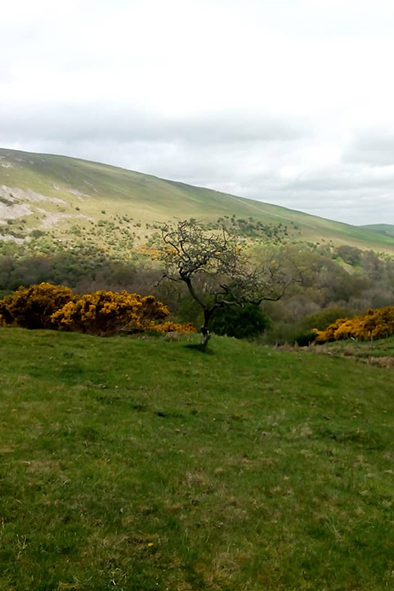It’s not easy being a small-town anarcho-communist. Even if you adopt a less theoretical, hands-on approach and avoid badgering the local farmers about Bookchin while they’re getting on with lambing season, there can be issues involved when it comes to praxis. Go and chain yourself to the railings by all means, but you’re in with a good chance of discovering that your arresting officer lives three doors down, goes to the same pub as you, and is the brother of a local councillor, and that suddenly it’s very difficult to get help with housing, allotments or even replies to your emails to local authorities.
Being in a community in which there’s one or two degrees of separation between everyone, but in which it’s not literally true that everyone knows everyone, comes with some notable downsides. It’s simpler to just associate people with what you see them doing day to day, and that’s the label they end up with. There’s the Plant Lady. There’s the Man Who Runs The Ice Cream Shop. And, in some towns, there’s the Resident Radical Who Won’t Shut Up About Communism. And because it’s taken as re(a)d that the Resident Radical will, in fact, talk quite a lot about communism, it’s seen as just ‘their thing’, and you’re unlikely to engage with them on more than a surface level. You don’t stand a strong chance of changing individual viewpoints by lecturing people, let alone the status quo.
I’d argue, though, that there is a kind of radicalism in small towns, one that you might not experience to the same degree in urban settings. When I set up a mutual aid group at the start of the pandemic, I’d envisaged the same set-up as what I’d seen being done in the cities, namely that somebody’s appointed to look after each street and make sure everyone was having their shopping done if they couldn’t go themselves. But broadly speaking, this happened automatically, and it happened because of the fact that everyone vaguely knows everyone in our community. Where help was needed, it was required because people couldn’t afford food in the first place, but that’s an issue imposed on us from the top down, and it’s something people face regardless of where they live. So the mutual aid group instead concentrated on setting up and running a free community larder, which is still operational and supported by the community to this day, three years on.
It can be easy to dismiss smaller communities and to act on the assumption that they’re inherently less radical than urban ones, but I think this is an oversimplification. A different approach is called for, and it’s one that is anything but top-down. Resist the temptation to lecture the farmers about Bookchin. Listen to them talk about their work. Don’t ascribe political views to them that they may not hold, and take account of the challenges they’re facing. Just as importantly, don’t assume that they’re unable to grasp political theory or that they’re uninterested in it, or that your mention of anarchism is the first time they’re hearing about it.
Seeing rural communities as a blank canvas, ready for you to paint black and red, mightn’t be the best approach. There are reasons people may be reluctant to nail their colours to the political mast, and it isn’t always lack of political conviction.
So what is the best approach? At the risk of oversimplifying, I would say that going out and helping your communities is the way forward. I find it’s more effective to avoid words like communism, anarchism, and even anarcho-syndicalism entirely, but rather to lead by example and let people come to these conclusions, or conclusions very close to them, on their own.
Look at what’s there in your community, and meet people where you find them. Many if not most small towns have a food bank these days – just another thing we can thank the government for – and not all those running these food banks will be communists. In fact, most of them won’t be. They might not even be anti-capitalists. But they are decent people doing good work, and in joining them, you are in no way compromising your anti-capitalist principles; in fact, you are demonstrating why you have them in the first place. ■
Capybarbara
A farming enthusiast in the rural north of England.
Audio Reading by Aces

